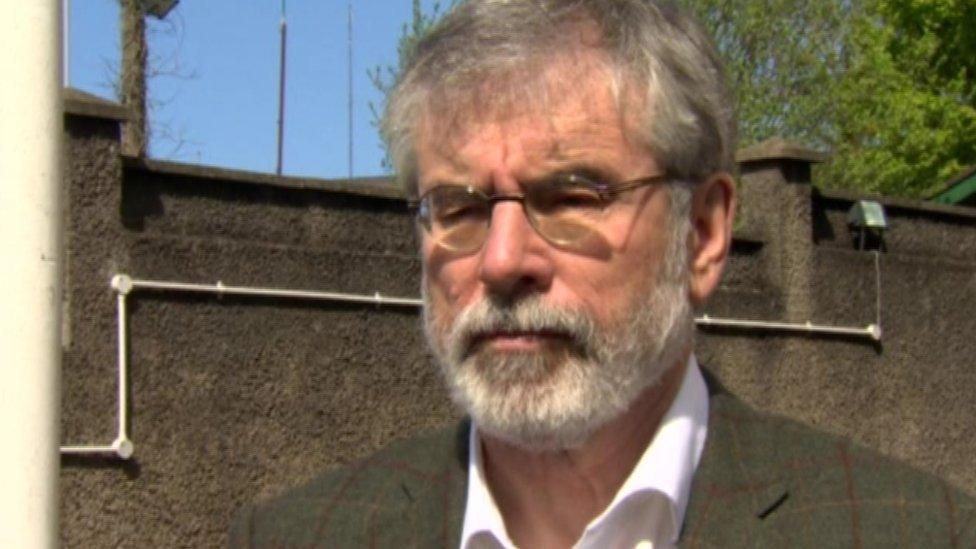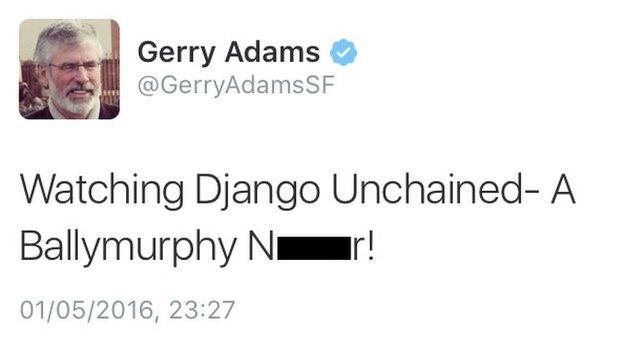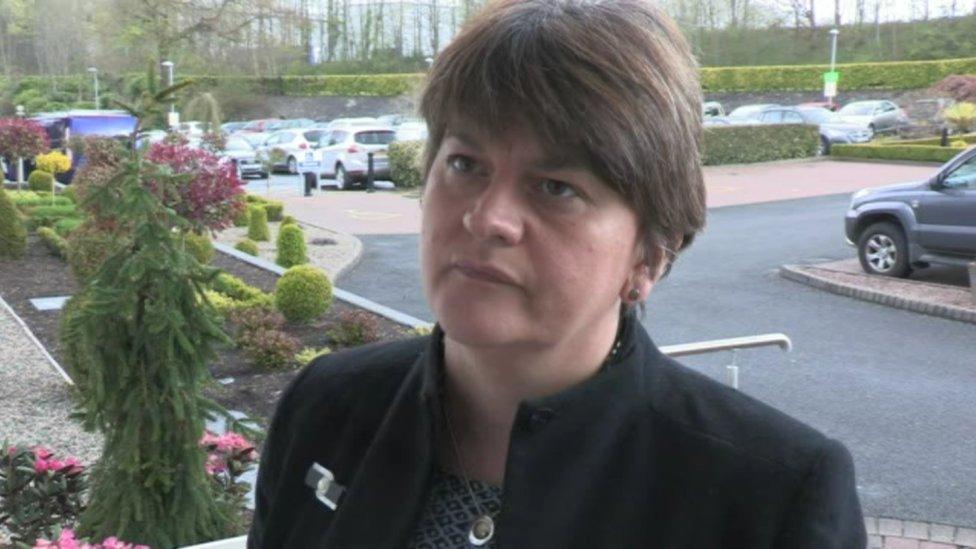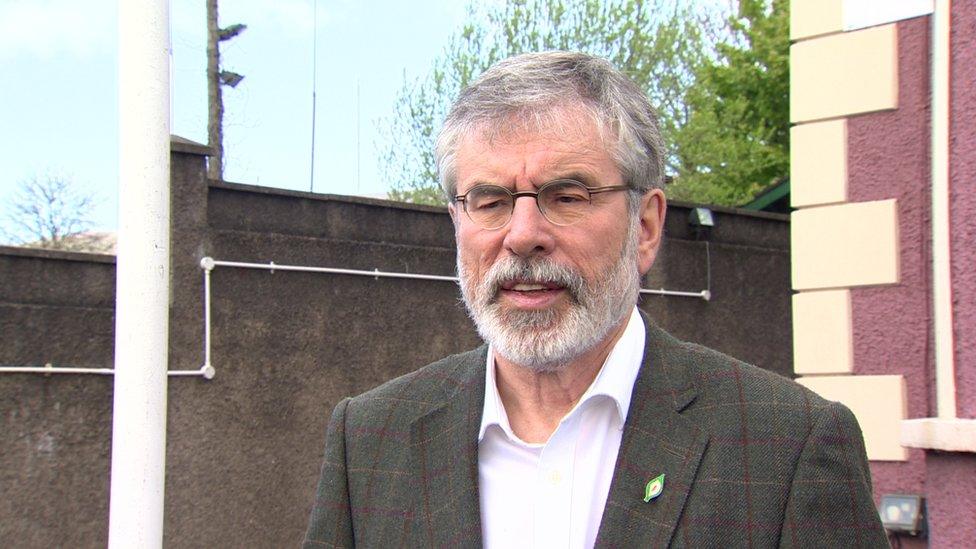Gerry Adams and the 'N-word'
- Published

Gerry Adams apologised for using the 'N-word' admitting it was "inappropriate" but stood by "the context and main point of my tweet which were the parallels between people in struggle"
The Northern Ireland Assembly election campaign had been looking dangerously anodyne, especially when contrasted with the high octane row about anti-Semitism within the British Labour Party. Then Sinn Féin leader Gerry Adams decided to go to the movies.
The angry responses to Mr Adams' tweet about the film "Django Unchained" and his subsequent apology for his "ironic" use of the N-word have been well documented elsewhere.
Now the Democratic Unionist Party (DUP) leader Arlene Foster is claiming the remarks pose "as big a test for Sinn Féin as the test facing the Labour Party in dealing with anti-Semitism under Jeremy Corbyn".
Having reported on Mr Adams for many years, I don't believe he would consider using the N-word in a bluntly derogatory or racist manner.
Anyone conversant with modern Irish republicanism knows how strongly Mr Adams and Sinn Féin sought to identify themselves both with the African National Congress (ANC) struggle against apartheid and the US civil rights movement.
We can have a debate about whether there are any circumstances in which a white politician can get away with using the N-word, irrespective of intent.

The tweet, published on the Sinn Féin leader's account on Sunday, was later deleted
The straight answer is probably "no". Maybe the more salient discussion concerns whether Mr Adams' attempts to identify his community's travails with the plight of those who suffered as slaves have any validity, or are simply pushing historical parallels much too far.
On this score, the Radio 4 World Tonight discussion between former IRA prisoner Tim Brannigan and author Bonnie Greer was illuminating, with Mr Brannigan suggesting the Sinn Fein President "lost perspective".
Do historical situations have to be exactly alike for someone to make a valid comparison?
After Ken Livingstone made his controversial comments about Hitler and Zionism, the Labour MP Conor McGinn - who hails from County Armagh - reproduced the cover of a book Mr Livingstone endorsed back in the 1980s, external on anti-Irish discrimination in England.
Mr McGinn was questioning whether Mr Livingstone might be guilty of double standards, not suggesting the experiences of the Irish and Jewish communities were analogous in all respects.
All attempts to compare and contrast vastly different international situations are fraught with difficulties. They tell us as much about the political perspective of those making the comparison as anything else.
Clearly "Django Unchained" is a film about slavery, but would Mr Adams settle down with a DVD of Otto Preminger's "Exodus", external and tweet about his identification with its Zionist central characters (even if they are plucky underdogs up against the might of the British military machine)?
Of course, Gerry Adams isn't the only politician to have reason to regret a loose remark. A decade ago, Fine Gael's Enda Kenny had to apologise over his use of the N-word while recounting an anecdote at a leaving party for a press officer.
More recently the former DUP leader Peter Robinson publicly apologised to leaders at the Belfast Islamic Centre after a controversial newspaper interview in which he said he would trust Muslims "to go to the shops" for him.
Sinn Féin could have done without this controversy on the eve of the Northern Ireland Assembly election, but I don't imagine it will make any difference to their vote.
The moral of the story for Mr Adams is - next time you are in the cinema, concentrate on the film and the popcorn, but leave your phone on airplane mode.
- Published3 May 2016

- Published2 May 2016
